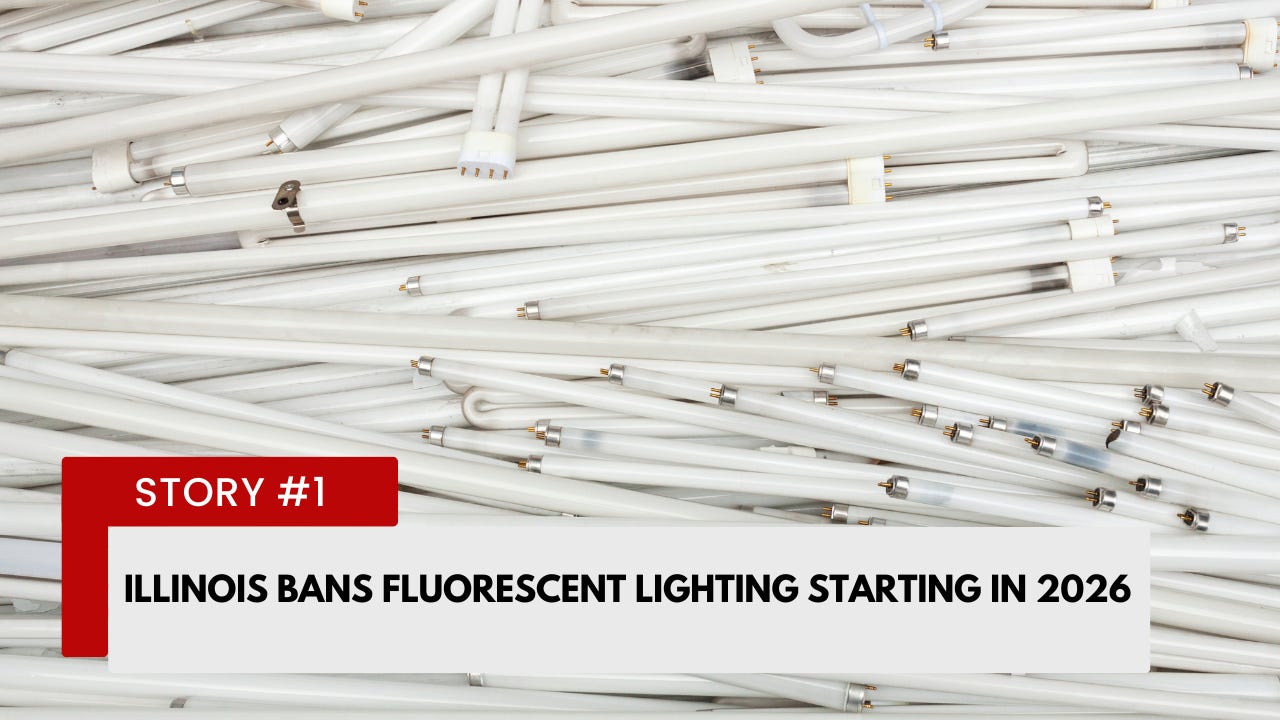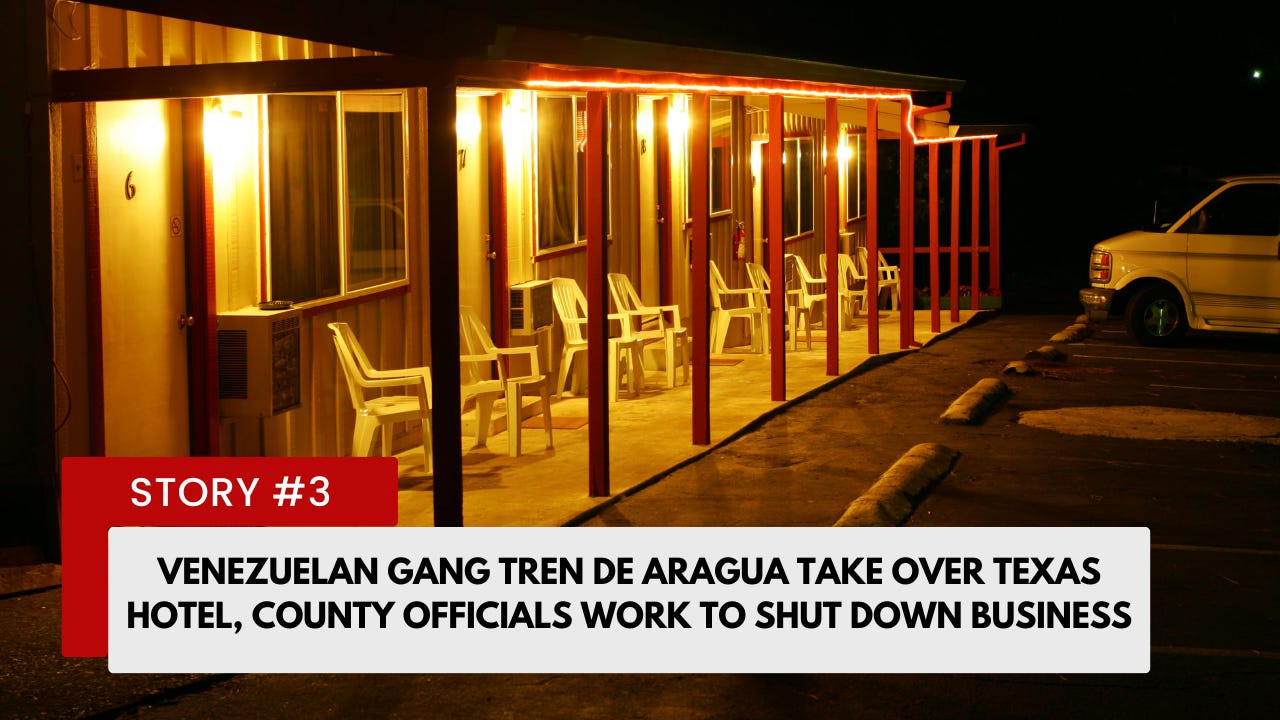I made a bold choice to leave my 25-year career in mainstream media to bring you real, unfiltered stories. I do this because I believe in transparency, truth, and keeping journalism alive for the people. But I can’t do it alone. I need your help. Subscribe for $5 a month. You can quit at anytime.


CHICAGO, IL - Illinois is banning fluorescent light bulbs in 2026. This government mandate replaces the old government mandate about how we light our homes and businesses.
The Clean Lighting Act changes language in the Illinois Environmental Protection Act prohibiting mercury-containing fluorescent light bulbs. The law starts with a partial ban in 2026 which applies to the production or sale of screw-based or bayonet-based compact fluorescent lamps.
The law takes full effect in 2027 and extends to pin-base compact fluorescent lights and fluorescent tubes. Fluorescent bulbs already in use will be allowed but will have to be replaced with LED bulbs when they burn out.
Exceptions for the ban for include medical uses, academic research, headlights on vehicles manufactured before 2020 and other exceptions. Click here to read more.

LANSING, Mich - A previously deported illegal immigrant from Mexico may serve a fraction of his potential life sentence for the murder of Grand Rapids’ Ruby Garcia if he accepts a plea deal offered by Kent County prosecutors.
Brandon Ortiz-Vite, a 25-year-old Mexican national, confessed in March to shooting Garcia four times with an illegally purchased handgun, before dumping the 25-year-old’s body alongside US-131 in Grand Rapids and fleeing in the woman’s car, Michigan State Police allege.
The Midwesterner was the first to report about Ortiz-Vite’s immigration status. Click here to read more.
Click here to order your Rapid Radios. Get 10% off by using code “BONDY10”.

EL PASO, TX - A Texas hotel may be shut down after 693 police calls were made in just two years at the property for suspected illegal and gang-related activity, according to legal documents.
The Gateway Hotel has received a temporary and permanent injunction from the El Paso County Attorney's Office to cease operations after "habitual criminal activity" was discovered.
"The large volume of calls for service to a single business and State’s analysis of police reports show that the Gateway has habitual criminal activity that violates the CPRC, and additional crimes that contributes to the overall blight this business brings to downtown El Paso," reads the El Paso County Attorney's complaint.
As recently as August 23, police documented the presence of transnational gang Tren de Aragua in the Gateway Hotel building, which the county attorney calls "most alarming." Click here to read more.

WASHINGTON — Hundreds of thousands of illegal migrants have been transported back and forth across the country from both red and blue states, as Democrats and Republicans continue punting the responsibility of taking care of them. Texas alone has set over 100,000 migrants to sanctuary cities.
However, the taxpayers within these cities and states are the ones footing the bill for most transportation costs. As far as how much it's costing,according to a public records request obtained by the Washington Examiner, Texas has spent around $221 million on transportation costs alone. The Fact Check Team contacted Texas Governor Greg Abbott's Office to confirm this number but was told another public records request needed to be submitted to the Texas Department of Emergency Management for confirmation. Click here to read more.

TALLAHASSEE, Fla. – The Heritage Foundation announced Thursday that Florida has secured the top spot in education freedom for the third consecutive year.
Since the Education Freedom Report Card was introduced in 2022, Florida has consistently achieved the highest ranking.
“Florida has enacted policies that allow parents to direct where education money goes,” Gov. Ron DeSantis said. “Our universal school choice program has empowered families, benefitted students, and improved educational opportunities. Florida leads on education freedom—and students and families are better off because of this leadership.”
This recognition underscores the state’s commitment to expanding school choice, supporting parental rights in education, and allowing families to select the best educational options for their children. Click here to read more.



















